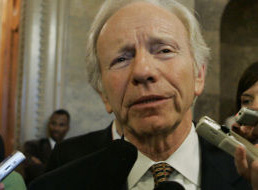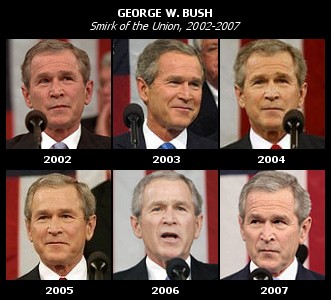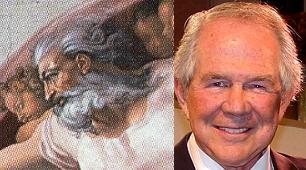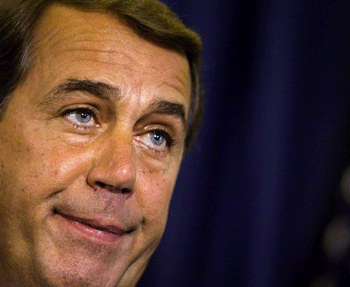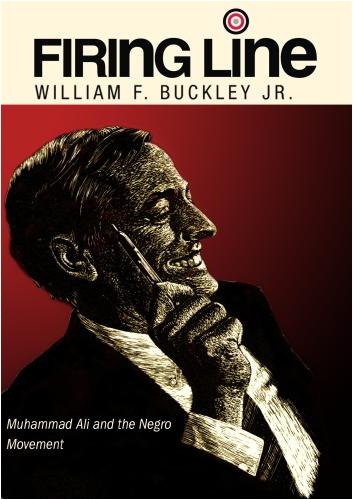May 29, 2012 |
Charles Ferguson has followed up his Academy Award-winning documentary film
Inside Job, with a hot potato of a new book:
Predator Nation: Corporate Criminals, Political Corruption, and the Hijacking of America (Crown Business).
Ferguson, who lives at the far west end of
Soho in New York City, spent a lot of time around Prince and Mercer
streets when working on Inside Job, so I met him at the Mercer Hotel on the day his book was officially published.
The title of Ferguson’s book certainly gets the reader’s attention, and
he powerfully delivers the goods, with a scathing, detailed history of
what led to the biggest financial disaster since the Great Depression.
Ferguson takes the reader on a revealing journey -- a sordid and
corrupt trail that leads from the Pandora’s box of deregulation from
1980 through 2000, through the two major economic bubbles. The first was
the dot.com stock market bubble of 2000, exacerbated by the terrorist
attack on the World Trade Center. Then came the much larger
housing/mortgage bubble, fueled by sub-prime lending and the emergence
of a host of new esoteric financial tools, meant to protect investments
-- in fact, they did the opposite, provoking the financial crash.
The economic disaster was driven, Ferguson writes, by a combination of
“very low interest rates, pervasive dishonesty through the financial
system, massive lending fraud, speculation, demand for high yield
securities, and not insignificantly, a squeezed American consumer
desperate to maintain living standards, and told by everyone – including
George Bush and Alan Greenspan, the brokers and the banks, that home
borrowing was the way to do it.”
Along the way, Ferguson debunks the right-wing meme that Freddie and
Fannie Mae caused the bubble; he holds the pure private sector
responsible, especially its least regulated shadow banking parts.
There have been any number of books dissecting the economic crash of
2007, and how it has left our country a hugely divided mess. The
well-off, the top 10 percent, are doing fine, while much of the rest of
the country is hurting or still in the dumpster of underwater mortgages
and long-term joblessness. But Ferguson’s book gives a more advanced
version of the story, based on the interviews and the insights he gained
while producing Inside Job.
The earlier work gives Ferguson a broad sense of the consequences of his
discoveries. Ferguson writes that besides the fact that the bad guys
have gotten away with crimes, " ... the rise of predatory finance is
both a cause and a symptom of a broader and even more disturbing change
in America. The financial sector is the core of a new oligarchy that has
risen to power over the past 30 years, and has profoundly changed
American life. “
Ferguson writes with great clarity. His opening salvo, “Where We Are
Now," is as sharp and understandable as any summary of the current
economic situation available to the interested reader. Still, his
assessment of the psychology of the American people is open to
disagreement when he writes, “Many Americans no doubt still believe in
the American Dream. One wonders how long they can maintain that illusion
for America is transforming itself into one of the most unfair, most
rigid, and least socially mobile of the industrial countries.”
One can’t disagree with the data that
measure the rapid decline of our country, but one can certainly argue
that the huge majority of Americans are fully aware of the limits of the
country’s economic system, and are quite depressed as a result. As
Ferguson himself documents over and over, the whole system has been
corrupted by tons of political cash, lobbying and revolving doors, with
almost no oversight. As a result, the average American has no political
leverage and rarely any good candidates to vote for. The oligarchy
Ferguson so clearly documents is fully in the driver’s seat. The
American Dream is probably quite dead.
So, if I have a bone to pick with Ferguson, it's that his solutions,
his prescriptions to get us out of the mess, are as naïve and vague as
his analysis is extraordinary. But I don’t fully blame him, because
this lack of clarity and concrete steps about how to build alternative
power in this country is one that plagues almost all the best and the
brightest of our critics, like Arianna Huffington, Robert Reich and many
others. It's easy to wish away political corruption, and the
stranglehold the banks have on our system, with hopes of political
saviors, third-party candidates and legislation that has zero chance in
our political climate. But in the end, political change requires many
crucial ingredients like resources, grassroots organizing, media and
messaging capacity, union power and much more. But it seems that most
of our elite critics don’t really want to go there.
In book after book, after all the brilliant analysis and powerful
storytelling, there is usually a very short section in the back that
idealistically and naively expresses, in a kind of wishful thinking,
handwringing way, that things really do have to change, without offering
a clue as to how. As Huffington wrote in Third World Nation, "We just have to get money out of politics" or as Robert Reich, at the end of his book Aftershock: The Next Economy and America's Future, in essence says we need a third-party candidate to rescue us.
Meanwhile, the pernicious role of money
and politics in the political system has gotten worse year after year in
the past three decades, culminating in the ultimate disaster: The
Supreme Court's (seemingly the legal arm of the oligarchy that Ferguson
describes) Citizens United decision that demolished the
McCain-Feingold law (a weak reform), and opened the floodgates to huge
amounts of campaign cash, up to this point mostly coming from the
mega-rich.
I personally wish that some percentage of
the brain power that goes into digging into the problems and what went
wrong was devoted to hard-nosed evaluations of how change takes place.
Instead, in Ferguson’s case, part of his hope is that some figure will
emerge out of the morass and lead us to the promised land. And absent
that, some third-party miracle, or “non-partisan, non-ideological
grassroots movement will save us."
But more on that in a bit, because the
story that Ferguson’s book tells is extraordinary, as much as it is
depressing and infuriating.
No One Has Gone to Jail for the Great Economic Fiasco
Ferguson writes Predator Nation with a bit of a grudge, as he
explains in the book. He is appalled that despite ample evidence of
disastrous decisions and large-scale lawbreaking, much of it outlined in
his film and his book, not a single person has gone to jail for a
fiasco that has wiped out a good deal of the hard-working American
middle-class' resources.
And he holds Barack Obama responsible, considering him a huge disappointment in his first term.
I asked Ferguson how it felt to have made the widely lauded, Academy
Award-winning film about how predatory politicians have taken over our
country, and yet nothing’s happened as a result.
Ferguson: I was not
under the illusion when I made that film that I was single-handedly
going to change the course of American political history. And I
wouldn’t say that nothing has happened. In fact, in one area, namely in
academia, there’s actually been quite significant change. But still, no
senior person has gone to jail as a result of the activities that led to
the bubble and crisis.
And nothing’s on the horizon. Does Ferguson find this reality personally frustrating?
Ferguson: Well, I try
to maintain a certain level of zen. Of course, I’m a human, sometimes
these things do get me upset -- as they get many people. But I have
found it actually very important and valuable to maintain a certain
amount of equanimity and distance at the personal level …for my own
sanity. I just find that if I get too upset about things, I don’t think
as clearly as I should and my work isn’t as good. My work is better when
I am able to remain calm and thoughtful and relatively unemotional.
We speculated about the motives of Preet
Bharara, the “celebrity prosecutor” who serves as the U.S. Attorney for
the Southern District of New York. Bharara has charged a number of
people with insider trading, received lots of media attention, and is a
fixture in the social whirl of NYC...but has not gone after the banks.
Why is he not addressing the larger issues of systemic corruption?
Ferguson: I’ve never met him personally and know
very little about him. So, I can’t say much about his patterns – but
many people have displayed a similar pattern. When you’re in that kind
of a job, you prosecute a few, prominent people so you can get your name
in the media a lot, but you don’t really fundamentally rock the boat.
And then after you’ve had the job for five years, or maybe 10 at the
most, you go to work doing defense work, defending the people you used
to be prosecuting or threatening to prosecute, and their income goes way
up. And there are many people who fit that pattern, including his
predecessor Mary Jo White. If that is the kind of calculation you’re
making in your mind, you don’t really go after the structural situation;
you don’t go after people who are really going to fight back, like
Goldman Sachs.
One of the overarching questions about the failure to hold people
accountable is one of fear. The power, the chutzpah, the arrogance seems
virtually all on the side of the big banks, hedge funds, that have
gotten hugely rich. Where are the fearless crusaders we need to fight
back? I suggested to Ferguson that Eliot Spitzer, who is featured in
the movie and is covered in the book, has been a rare exception. Was he
an exception? And where are more Eliot Spitzers?
Ferguson: I think that there are many people who
are very smart and who are concerned about this situation. They don’t,
these days, have positions of major political power, because they don’t
get to have positions of major political power. Spitzer was perhaps the
last one who reached to that kind of level, who was willing to revolt in
the way he did. In the current environment, which is substantially more
extreme than when he first occupied the offices he did, as New York
State Attorney General and governor of New York -- in the current
environment, it’s not clear that he could have those jobs, that he could
get those jobs, or keep them. It’s not that there aren’t people who
could occupy those positions. If President Obama had made different
choices, different personnel choices and appointment choices then we’d
be in a very different situation.
Ferguson’s critique of Obama weighs heavily in Predator Nation.
I asked Ferguson, “You seem to be quite discouraged about Obama’s
performance and consider it also an area of massive discouragement for
millions of Americans. Has his performance surprised you?”
Ferguson: It did surprise me. Perhaps, I’m still naive you
know, but -- I’ve been disabused of my few remaining illusions by Mr.
Obama’s conduct. And not just his conduct, many people’s conduct. It was
surprising. I certainly understood that he would have faced -- did
face, does face -- substantial, powerful opposition, but I thought that
when he was elected and when he took office, that the political and
economic situation in the United States was such that he actually did
have a window, a politically feasible window to address some of these
things, and he didn’t take it. It was a surprise and a disappointment.
Conflict of Interest in Academia
One of the most powerful sections of Predator Nation is the chapter titled “Ivory Tower.” Ferguson mentions in the book that when people saw Inside Job,
one revelation they were most flabbergasted by was the level of
conflict of interest and corruption within the academic community,
where people expect objective science and a search for truth. But
rather, Ferguson documents how “…parallel with deregulation and the
rising power of money in America, significant portions of American
academia have deteriorated into ‘pay to play’ activities.”
Ferguson: Now, this is so common, so endemic in
certain disciplines -- particularly the economics discipline -- and also
related ones: law, business, public policy...economics is probably the
worst. There are so many eminent, powerful, senior, prominent professors
who have these conflicts of interest. They are now the most powerful
voices in the university community on these questions.
I asked Ferguson about the Berkeley Research Group, the Analysis Group,
and other huge money-making enterprises that marshal the forces and
expertise of "bought professors" -- operations that are now a
billion-dollar industry. How did these firms become so powerful,
prominent, and the professor jobs so lucrative?
Ferguson: It started about 30
years ago. The first place it started was trust policy. Economics
professors started consulting on major anti-trust cases. And then it
spread out from there, and it grew in parallel with free-market
economics and the deregulatory movement. As corporate and special
interest money started to become more prominent in the political system,
it also, in parallel, started to become more prominent in the economic
system. And as with money in politics, it kept on growing, and as with
money in politics, nothing was ever done about it. So we woke up one day
and discovered that actually, this now is a really major problem in
these academic disciplines.
Ferguson offers a short list of the most lucre-driven professors,
including Berkeley’s Laura D’Andrea Tyson, and Columbia Business
School's Frederic Mishkin, whose papers (for $100k) basically provide
the rationale for the criminal collapse of Iceland's economy. Miskin, as
Ferguson reports, made more than a million dollars in his various
professorial activities before he joined the Fed in 2006, and because
he had to complete a financial statement, we know that he owned between
$6,740,103 and $21,356,000 in stocks. Tyson, as another example, made
approximately $784,000 per year, just from the cash and stocks from the
four public companies on whose boards she sits.
But even more striking is the case of Glenn Hubbard – the anti-tax
Dean of the Columbia Business School (and an adviser to the Romney
campaign) who got $100,000 for testifying in the criminal defense of
two Bear-Stearns hedge fund managers (who were acquitted) and who
clearly makes millions (more than $700k annually from just three of the
boards on which he sits). What does it mean that a guy who plays a huge
role in making sure the wealthy aren’t paying taxes is the dean of one
of our most prestigious business schools?
Ferguson: It certainly is out of whack, that’s for
sure and it’s disappointing. I’m actually more disturbed if it were
simply a matter of it happened, by coincidence that he had conservative
political views or he had specific views about the tax system, and they
were his sincere views and that was that. I would disagree with him, but
it would, in some sense, be kind of okay. But in this case and many,
many other cases, these people actually make huge amounts of money by
consulting for the financial services industry and other powerful
industries.
Speaking of large amounts of money, Larry Summers, former
president of Harvard, and senior financial adviser to President Obama,
received $5 million in one year for working one day a week for D.E.
Shaw, a large hedge fund. He’s worth between $17 and $38 million (his
earnings the year before he joined Obama were $7,813,000). You mention
that in 2007, Summers was marketing Shaw-owned CDOs to Asian sovereign
wealth funds. In the book, you wonder if that really was the process of
dumping toxic assets on naive institutions, something of course we know
Goldman Sachs did. However, you say in the book that Summers is not
corrupt in any crude literal way. How do you define corruption and what
is crude corruption?
Ferguson: I don’t think that he is crude. I think
my statement’s correct. I don’t think -- in fact, I’m certain that Larry
Summers doesn’t take envelopes of money in return for saying or doing
this or that.
But if he were selling toxic assets to naive institutions for his $5 million-a-year, one-day-a-week gig, would that qualify?
Ferguson: Well, “If.” First of all, we don’t know
what he was doing in part because he hasn’t spoken about it. That might
have been an unsavory, private business activity. I would say that I’m
more concerned about his public policy pronouncements and activities and
the way that they have been so consistently a) erroneous and b) heavily
favorable to the financial services industry. I think it’s reflective
of the fact that Larry is being extremely ambitious and having a very
powerful need to be around powerful people and be at the center of
things, etc.
In Predator Nation there’s a long litany describing the crisis
we’re in -- homes foreclosed and underwater, high, long-lasting
unemployment, unprecedented numbers of people in poverty and on and on.
Ferguson asserts that “no country has come remotely close to the
extreme income and wealth inequities that we have.” Yet it's happened in
a relatively short time: 30 years. I asked Ferguson, what are the
factors that are most responsible for this transformation, from his
perspective?
Ferguson: I would name three things. One is the
role of money in politics in that it has permitted inefficient and/or
dangerous companies and industries to insulate themselves from proper
regulation and from competition by using money to obtain political power
or political favors. In the book, I talk about the automobile industry,
about broadband policies in America and several other industries, and
of course, the financial sector.
The second thing that I would point to
is information technology, which is a very, very powerful good force,
but which also makes it possible for America-headquartered companies to
use global labor forces and in particular, use very low-wage labor from
around the world.
And the third factor is that given
that fact, the United States can only continue to be prosperous for the
majority, for its whole population, if the American population is very
well-educated. A lot of -- half of the American population -- is no
longer very well-educated.
Social Change and the Mass Affluent
I’ve recently noticed more frequent use of the term “mass affluent,”
referring to people who are well above average in terms of income and
or net worth, but not at the top. According to
Wikipedia, mass affluent is a term used by marketers to identify individuals with liquid assets of $100k to $1 million.
In a couple of places in
Predator Nation, Ferguson writes about
how the country is working pretty well for 30 or 40 million people,
about the top 10% (Wikipedia refers to about 33 million mass affluent
households, so actually quite a bit more individuals than 30 or 40
million).
So I posed to Ferguson the big question of
how do we change the mess we are in, when the most educated, and
arguably very creative, productive 30 or 40 million or more people are
doing really well, what is the incentive for us to change the system?
Ferguson: Unfortunately at the moment, there isn’t
any economic incentive for prosperous people to change the system. But
on the other hand, there is a very strong incentive for the bottom
two-thirds, three-quarters of the population to change the system. Since
this is still a democracy -- at least in some ways. People still vote.
Right, but will they have any candidates to vote for who are going to
make any significant difference in their lives? We have talked about
Obama being a huge disappointment. Chuck Schumer, the senator in New
York, fights vociferously to keep the hedge fund tax rate at 15%. So,
what do we do?
Ferguson: As I say in
the book, there are several avenues for reforming this situation and
this system. I’m sure that people are going to try all three. One is
non-partisan, non-political, social movements like the civil rights
movement, the environmental movement, the gay rights movement.
But those movements, as important as they were and are, don’t have so
much do with money, the redistribution of wealth, or the availability of
jobs, the overall oligarch-driven crisis we are in.
Ferguson: The environmental movement certainly
does, and I would argue the others do, too, and there have been such
movements. The other two avenues for change are a third party or an
insurgency in one of the two established parties. None of those avenues
is easy, and it won’t be instantaneous.
Huge Obstacles to Political Reform
Not easy is an understatement. First of all, we did have an insurgency
in one of the parties -- the Tea Party. It, in combination with
deep-pocketed right-wing donors like the Kochs, effectively took control
of the Republican party. And it certainly did not, remotely, begin to
solve any of our problems. And this year, there was another attempt at a
third party by Americans Elect, which was really a kind of Pete
Peterson operation of wealthy people cheered on by New York Times
columnist Thomas Friedman, which created a $10 million Web site, got
ballot access in all the states, but amounted to nothing. They were
looking for candidates –NY Mayor Michael Bloomberg, who’s worth $25
billion, was their prime target.
The system is stacked against third
parties and the only real way a potentially viable third party can get
established is if there’s a large amount of wealth involved. In the case
of Americans Elect, the not-so-hidden agenda was austerity -- to
balance the budget. (Ross Perot spent more than $12 million of his own
money, as the last viable third-party candidate in 1992, and received
18.9% of the popular vote, but no electoral votes.)
Ferguson: I guess my
new view is that the general avenues for changing the system are
reasonably clear. They’re the ones that I mentioned. That doesn’t mean
that they’re easy. The fact that something is obvious, doesn’t make it
easy, on the contrary.
I think it’s an illusion that they’re obvious. I don’t think they’re available.
Ferguson: Well, we
disagree about that. My own view, for whatever it’s worth, is that the
first, most important... the currently most important -- the necessarily
first step in that process is a wider awareness of where we, in fact,
are. I don’t think there is yet in America, a broadly shared awareness
of our situation. I think that it’s coming.
And this is why we disagree, because I
think the American people are hyper-aware of the problem, they just
don’t have any path to do anything about it. And they’re scared, they’re
really frightened. Of losing their jobs, rocking the boat, creating
problems….
Ferguson: Well,
who is the “people”? Many people, I would certainly agree that a large
number of people are aware, at least to some extent, but it’s not
sufficient. The awareness isn’t sufficient yet, I would argue.
Is there a tipping point? Why don’t you think we’re there?
Ferguson: I think
there are a number of reasons for that. One is that it is a relatively
new situation in historical terms, and many Americans aren’t yet used to
thinking in this way. I think, also, that the political techniques used
by both parties to emphasize disagreement about so-called values issues
has successfully distracted a lot of people from this underwater
economic change. I think it’s when you take more time for enough people
to get sufficiently aware and sufficiently upset where you begin to see
the emergence of some kind of social and/ or political movement today.
Can you imagine that scenario a little bit further? What it would look like?
Ferguson: I don’t
know if we’ll see the emergence of a single, charismatic figure in the
mold of say, Martin Luther King Jr., or if we’ll see the emergence of a
more partisan/political figure who might successfully run for president,
or some combination of the two. Maybe this won’t happen. It’s not that
I’m in some Pollyannish way, completely optimistic that everything’s
going to be fine, I’m not. I’m worried about this condition. But on the
other hand, I don’t think that I should just kind of slit my wrists
because there’s no hope, either. America’s had problems before --
America’s had very serious problems before, and it has recovered from
it, and made progress. Sometimes very painfully, and sometimes very
slowly, but it has done so. So I wouldn’t count out this country’s and
the American’s people’s capacity for self correction.
And what’s the scenario if it doesn’t self-correct?
Ferguson: There are a
number of scenarios. I mean, you could either go relatively slow,
relatively gradual, long, decline like... maybe like Argentina between
1920 and 1985. Or maybe more like England or, European countries, Europe
in general, much of Europe, really...like Greece. We could end up
looking like a really big Greece. That’s one possibility. Another even
more disturbing possibility is if we get a really nasty demagogue.
Unfortunately, I don’t rule that out.
Do you think that Occupy Wall Street is
doing anything to raise awareness? And should Occupy Wall Street take a
more electoral focus and consider endorsing candidates?
Ferguson: Yes, I do think that it’s evidence of
something. And I think that things like it are going to grow, and we’ll
see what they’ll turn into. But demonstrating, raising popular public
awareness, basically making life a little more uncomfortable for people
who need to be reminded that their actions have consequences is all
good.
In terms of elections, no, it’s good they’re exposing the broken
system. Occupy Wall Street doesn’t have to be -- and I’m sure won’t be
-- the only movement or the only group that addresses these issues. The
environmental, the women’s movement has a half a dozen major groups. The
civil rights movement had several major groups. So I think there will
be several major groups, and Occupy Wall Street and the kind of things
they do will be one and there probably will be others that are more
focused on partisan politics and getting people elected. There will
probably be several slightly different, maybe even substantially
different points of view, which is fine.
Is there anything else you want to say that we didn’t touch upon?
Ferguson: I would add one other thing and I
hope and believe the book does help this -- which is to look in both a
very detailed and also in a very broad way at the financial services
industry and its conduct, and point out that what it did in the bubble
and the crisis really was criminal. And that it’s really important and
dangerous that the criminal justice system has not been used. If the
criminal justice system were used properly, these kinds of things would
be much less frequent and much less severe than they are in fact
becoming.
Don Hazen is the executive editor of AlterNet.













